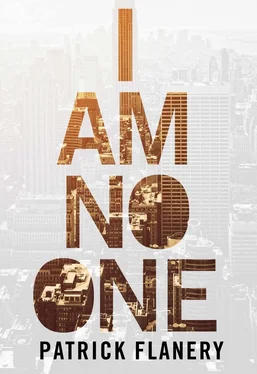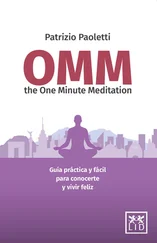Not wanting to wait for his response I showed myself out the front door. My car was already cold though the engine had not been off very long, so I sat in the driveway as the steering wheel lost its chill. Ramsey was moving around inside the house, his shadow crossing the windows as he pulled curtains closed one room after another. I watched, as if in watching his movements some gesture or tic might bring back memories of him, but nothing returned. He was like any other thin young man. I could read neither his sexuality, nor his politics. As for age, he would have been at least in his early thirties, if not older, unless he had been some kind of wunderkind, not impossible at Columbia but unlikely nevertheless. His face still had the youth of a man in his twenties, younger looking than Peter, who must be his near contemporary.
When I got home I pulled into the garage and stayed in the locked car until the door had closed, climbed out after a moment’s hesitation and locked the garage door before entering the house, checking all the doors and even some of the window locks, as if someone might be moved to push a window open and crawl inside, padding damp footprints across my floors and carpets before hunkering down next to my bed. These are things I imagine without much effort, though I have never suffered a break-in, and neither has my mother or anyone in my extended family. We have been singularly untouched by crime, so much so that one might think we were overdue for an intimate encounter.
Before going upstairs I checked the front and back doors once more. I think now that I had not closed the curtains on the second floor, so before I turned on the lights I must have gone from room to room, pulling curtains shut and for a moment looking out on the surrounding farmland under the blue-white shimmer of moonlight. To the south, I could see the lights burning in my neighbors’ house, where Michael Ramsey might have been watching television and drinking a beer, or perhaps doing something far less innocent. It was early, not even ten, and I felt a heaviness settle on my shoulders as I stood in the dark bedroom with my bare feet on the wooden floor, its smooth polish interrupted by a scattering of dust that created the impression of life, the world beyond human effort struggling to overtake us. Through the trees I could see the forward march of memory, an army worn down by long battle, forgotten by its generals, creeping forward to deliver their report.
In Ernst Bloch’s The Spirit of Utopia , written in the midst of the First World War, he suggested in a section entitled ‘The Egyptian Volition to Become Like Stone’ that in Ancient Egypt’s ‘spirit of stone’—that ‘total dominance of inorganic nature over life’—‘Man. . sees his future, but sees himself dying,’ and consequently ‘a nameless fear of death dominates. . every Egyptian face.’ Although undoubtedly exoticist, and infected by the cultural assumptions of his own time, as any historian must be to a certain extent, Bloch’s lines sang through my thoughts, rearranging themselves into new formulations as I came to know Fadia, until at last I could no longer see her without hearing his words. A consciousness of death’s proximity had been carved into her face, or so I imagined, until there was, in the firmness and clarity of her features, the quality of stone.
Nothing happened between us when Fadia was an undergraduate. Nothing happened during her MPhil, and although I was conscious of her beauty — it was something one could not help noticing and on occasion I found myself distracted by her poise, by the fine strong arch of her nose and the dark hair she kept long, sometimes braided, often spilling loose around her, straight hair that seemed to resist all curl except around the face, where fine tendrils flexed themselves into spirals to frame her features and at times stray into the soft pucker of her barely open mouth — I can assert to myself and to anyone else who might ask, I had no intention of pursuing her. This has never been my style, unlike a great many male academics who find themselves single or simply away from their wives — or even their husbands nowadays — I was never inclined to seek affection from my students. Perhaps this comes from an old Puritan impulse or merely an aversion to mess and complication, but however much I might have noticed women in my classes over the years, and I can recall some great beauties, I never imagined trying to seduce any of them, except, perhaps, in the course of daydreaming, an exploration of erotic possibility unblemished by anything approaching concrete intention.
Then, one January, in the first year of her doctoral studies, Fadia’s world came unstuck, by which I mean that the world of her parents and brother, who remained in Egypt, began to fracture and crumble. On what in Egypt was celebrated as ‘Police Day’, a holiday commemorating the sacrifice of police officers who resisted British occupation in 1952, the people rose up against the government, and even against the police themselves and the whole repressive apparatus of the Ministry of the Interior, which had placed political activists under surveillance, among many other breaches of civil liberties. By chance I happened to pass the College MCR one evening after a High Table dinner and noticed Fadia and a group of other graduate students gathered to watch rolling coverage and analysis of the unfolding events or crisis or revolution, as it became, although a revolution that seems in the end to have been forestalled by a coup d’état.
But that January evening, as I paused outside the MCR, I remember how Fadia looked up at me hovering in the doorway, her face lit by a strange radiance of hope intermingled with fear. She appeared to be torn moment to moment between poles of elation and concern, triumph and defeat, and from the little I then understood of her and her family, the division that I already assumed existed though I would later come to see how the fracturing was more complex than simply along the fault lines of age, I sensed she was happy for the overthrow of a regime she despised but also terrified about what this shift in her nation’s history would mean for her parents, brother, and extended family. Perhaps she did not then know where Saif really stood. Perhaps Stephen Jahn did not know either. Perhaps Saif himself did not know, although I should say, I want to record it clearly here now, on this page, in this document, that I have never met or communicated with the man, or with any other member of Fadia’s family. Of that charge I remain innocent.
Stephen was absent from College in those months, as he often was during crises in the Middle East, and I had begun to intuit that his role was only marginally collegiate or academic. I suspected he was entangled in a web of government and global intelligence, whether working for the CIA or MI6, although I could not then say and still do not have an answer. He acted like my idea of a spy and so I began to believe he must be one, clip-clopping down Turl Street in his three-piece gray suit and his matching homburg, little round spectacles perched on his nose, feet in brogues handmade by Duckers, so he looked as though he would have been more comfortable at the beginning of the twentieth century than in the second decade of the twenty-first, a spy in Vienna or Berlin in the 1920s or ’30s rather than a spy of the present, and yet perhaps that was the greatest disguise of all, to make himself up as a walking antique who was, in fact, nothing of the sort. By that point I had been in Oxford for nearly a decade and had learned over the years that if I ever had computer problems, at home or in College, Stephen could be relied upon to sort them out faster than anyone else and with no expectation I should do anything in return except perhaps stand him a drink in the Senior Common Room. How early did I first seek his assistance? If only I could pinpoint that date and cross-reference it with the start date of the files delivered to me here in New York, I might begin to find an answer to the questions I seek.
Читать дальше












